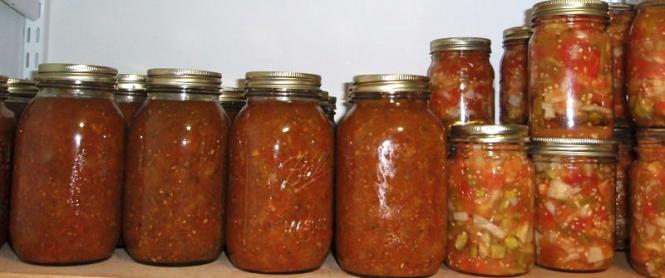As I’m planting my crop of tomatoes this year, I couldn’t help but ponder about how much I’ve benefited from this one item of produce. In her recent Simple Good & Tasty post, Rhena Tantisunthorn described the history of tomatoes, so I reflected on my own history and realized how my love for tomatoes has been a catalyst of growth for me in so many ways. Here are just a few of them:
Growing food – I credit the tomato plant for inspiring me to be a grower of food. When my husband and I lived in the Twin Cities, the centerpiece of my small backyard garden was the small group of tomato plants I purchased from a garden store. Then when I learned about heirloom tomatoes, I got braver and started my plants from seeds each year, which made me feel like a truly accomplished gardener. As my tomato plants grew, so did my confidence and my success as a gardener. In fact, I am happy to say that I have never had a problem with blight, or any other malady. That is not to say that I haven’t had my share of misfortune, such as the dog rolling in the garden, dehydration, or an over-achieving husband with a weed-whacker. Because of my success in propagating tomatoes I expanded my interests to grow many other types of fruits and vegetables, ever-expanding my garden into the small farm field it is today.
 Cooking – I admit I’m a really bad cook. I’m not imaginative, don’t really understand how to combine flavors, and regularly burn my very-forgiving All-Clad pans. But my one accomplishment in the kitchen is cooking with fresh tomatoes. Give me a pot and a bushel of vine-ripened tomatoes of any variety and I can create a dynamite pasta sauce, chili or stew. I also make a darn good salsa that I’m actually proud to serve to guests.
Cooking – I admit I’m a really bad cook. I’m not imaginative, don’t really understand how to combine flavors, and regularly burn my very-forgiving All-Clad pans. But my one accomplishment in the kitchen is cooking with fresh tomatoes. Give me a pot and a bushel of vine-ripened tomatoes of any variety and I can create a dynamite pasta sauce, chili or stew. I also make a darn good salsa that I’m actually proud to serve to guests.
Canning – Since my culinary capabilities are so limited, I’m highly motivated to extend my crop long past harvest time. When we moved to the farm, I decided it was appropriate for us to live like real farmers and preserve our seasonal bounty for winter. So I invested in a “How to Can” cookbook, canning pots, and jars. As with all learning curves, I did break jars, burn pots, cut my fingers, and gave myself a blistering hot facial, but I have improved to the point where it is now safe for others to enter the kitchen while I’m canning. The best part of all, is keeping my pantry fully stocked with sauces, salsas, and whole tomatoes all year long.
Eating healthy and local – Using tomatoes as main staple in my diet makes it easy for me to eat healthfully. The nutrition profile proves that they are a great source of fiber and antioxidants including Vitamins A, C, E, and K, so I know they’re good for me. Plus, because the harvest comes from my own farm, I know precisely the dirt in which they are grown, the care they are given at harvest time, the distance they travel to get to my table, and even the names of the animals who help keep the soil fertile. (Snowflake, Miss Molly, and Autumn from Lakeland Alpacas, in case you’re wondering.)
There is only one thing that really bothers me about tomatoes, and that is classifying them as fruit. That makes no sense at all. Tomatoes are vegetables. It doesn’t matter to me what criteria that botanists, master gardeners, or even fellow farmers use to classify fruits or vegetables; I believe the real standard for making this determination is the way in which they are prepared and served. Fruits are served on ice cream. Vegetables are served on pasta. It’s that simple. The only way I will ever accept tomatoes as fruit, is when they are prepared and served as a delicious ice cream topping. So here is my challenge to you. If you do have such a recipe, please share it. Nothing would make me happier more than to have tomatoes for dessert.

Debbie Morrison grew up in Minneapolis and spent more than 20 years as a marketing strategist for ad agencies in the Twin Cities. Now, she and her husband own and operate Sapsucker Farms, where their certified organic crops include maple syrup, honey, apples, plums and vegetables. Debbie's last post for Simple, Good and Tasty was Eat Local Honey and 7 Other Ways You Can Help Save Bees.




